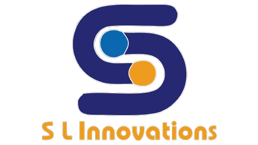Founded in the year 2020, we SL Innovations are actively engaged in the distribution of Smart Classroom Solutions. Our product range encompasses IFPD, Audio Podium, Smart Boards ,etc., We are providing these products in different stipulation to cater the diverse requirement of our huge client base. Offered products are manufactured from supreme quality components under the supervision of our vendor’s experts as per the industry defined standards. Our product range is highly demanded among our clients owing to their optimum quality and high performance. Apart from this, we are offering our products at the industry best standard prices to our customer within the assured period of time.
With the help of our vendor base, we are able to fulfill the bulk demand in committed time period. These vendors are equipped with modern machines and tools. Offered products are checked on diverse quality parameters before the final delivery of the product at the clients end. To satisfy our clients in an effective manner, we are offering our products in standard as well as customized configuration.
Smart technologies have become increasingly important in the field of education due to their numerous benefits and transformative potential. Here are some key reasons why smart technologies are crucial in the education field:
Enhancing Learning Experiences: Smart technologies provide interactive and engaging learning experiences that can cater to individual student needs and learning styles. They offer multimedia content, simulations, virtual reality (VR), and augmented reality (AR) applications that can bring abstract concepts to life, making learning more enjoyable and effective.
Personalized Learning: Smart technologies enable personalized learning experiences by adapting to students' abilities and progress. Intelligent algorithms can analyze data and provide personalized recommendations and feedback, allowing students to learn at their own pace and focus on their specific areas of improvement.
Access to Information and Resources: The internet and digital platforms enable students and educators to access vast amounts of information and educational resources from around the world. Smart technologies facilitate easy access to online libraries, educational websites, e-books, and video lectures, expanding learning opportunities beyond traditional classroom boundaries.
Collaboration and Communication: Smart technologies promote collaboration and communication among students and educators. Online platforms, video conferencing tools, and collaborative applications enable students to work together on projects, share ideas, and communicate with peers and teachers, fostering teamwork and improving communication skills.
Remote and Blended Learning: Smart technologies have become essential for remote and blended learning scenarios, especially during unprecedented situations like the COVID-19 pandemic. They enable educators to deliver lessons, assignments, and assessments remotely, ensuring continuity of education and minimizing disruptions.
Data-Driven Insights: Smart technologies provide valuable data and analytics on students' performance, engagement, and learning patterns. Educators can use this data to identify areas of improvement, track progress, and make data-driven decisions to enhance teaching methods and optimize learning outcomes.
Efficient Administrative Tasks: Smart technologies streamline administrative tasks, such as attendance tracking, grading, and scheduling. Automation of these processes saves time for educators, allowing them to focus more on teaching and providing personalized support to students.
Lifelong Learning and Skill Development: Smart technologies facilitate lifelong learning by offering online courses, webinars, and certifications. Students and professionals can access a wide range of educational resources to enhance their skills and knowledge, keeping up with the rapidly evolving job market.
In summary, smart technologies play a vital role in revolutionizing education by enhancing learning experiences, personalizing instruction, improving access to resources, promoting collaboration, facilitating remote learning, providing data-driven insights, optimizing administrative tasks, and supporting lifelong learning and skill development. Their integration empowers educators and students alike, transforming education into a more engaging, inclusive, and effective process.
